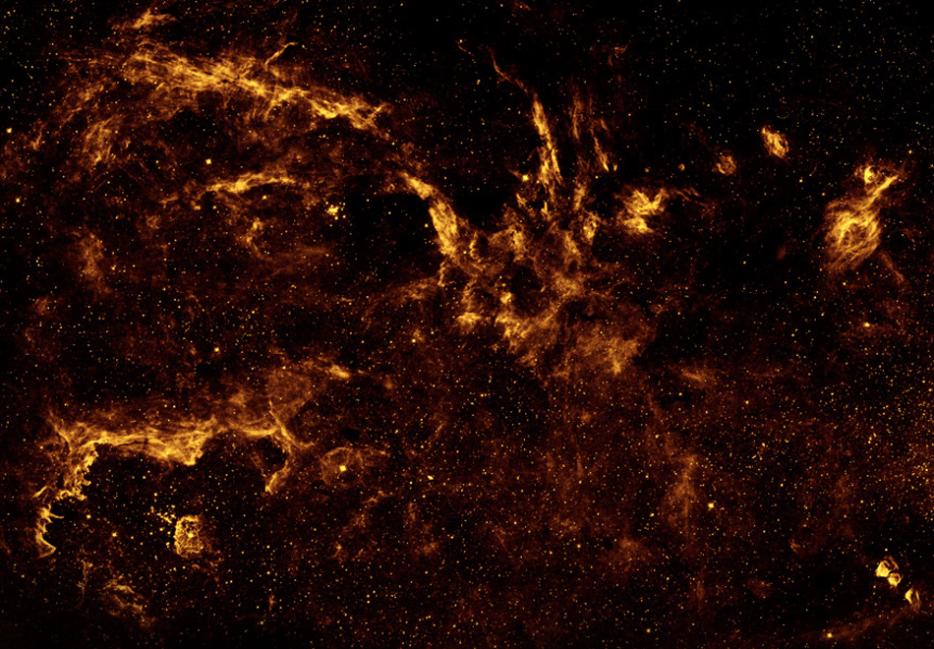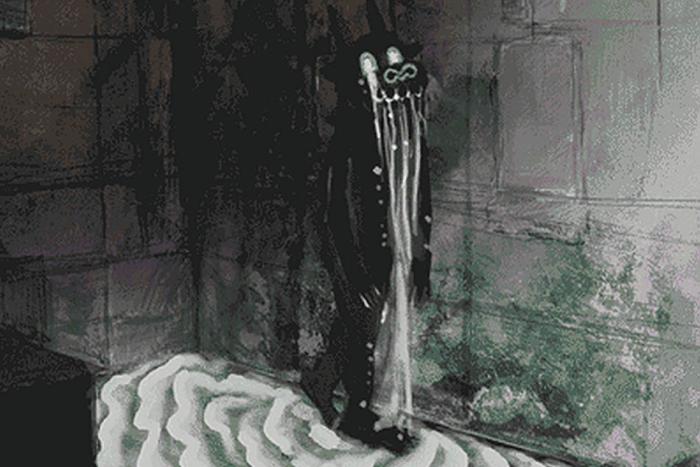To sort out a problem in particle physics, researchers at MIT say they first have to contend with the question of free will, as in: does it exist or not. For the record, Spinoza says that it doesn’t, and Schopenhauer says that it might, but that more to the point, everything that happens, happens necessarily. Other opinions are legion: Nietzsche, libertarians, and some fascists have spoken loudly in its favour with mixed results. It’s an ongoing question in philosophy, but now MIT, in pursuit of pure science, has made the issue technical.
The researchers there are trying to determine if the universe acts according to the rules of classical physics or quantum physics. They think they’ve seen evidence that a particle on one end of the universe can affect the behaviour of a particle on the other end of the universe, through a process called entanglement, which, according to classical physics, is impossible. It’s not a new phenomena—Einstein called it “spooky action at a distance”—but MIT is worried about a mysterious bias, a loophole that affects how entanglement has been detected in the past. I’ll let them explain:
“This loophole proposes that a particle detector’s settings may ‘conspire’ with events in the shared causal past of the detectors themselves to determine which properties to measure,” says MIT, in a February press release, “a scenario that, however far-fetched, implies that a physicist running the experiment does not have free will in choosing a detector’s settings.” They add that by using deep-space quasars as an observational benchmark, they’ll close the loophole and take the hapless physicist out of the equation altogether, but without addressing the metaphysical implications, which presumably they see as none of their business. And then they basically drop the mic.
This seems kind of important, that there may be something along the lines of a “conspiracy” here that determines outcomes. If I read this right, they are not exactly saying that the universe itself is conspiring to fudge the results of its own exploration by denying the scientist conducting the experiment his free will, but they are not saying it isn’t, either.
So MIT is sticking us with a Borgesian puzzle: there’s a force in the universe that determines the outcomes of scientific experiments and therefore, possibly, everything else. So what kind of force are we talking about? Electric, magnetic, nuclear, elastic, radio-controlled, steam-driven, archangel- or butterfly-dependent, or perhaps divine? If the universe has a mind of its own, someone needs to figure this out.
There is, in fact, a great literary tradition in the notion of a sentient universe, not just in zap-‘em-up science fiction, but in the headier, stoner-friendly works of Philip K. Dick or the Strugatsky brothers, Arkady and Boris, born in 1925 and 1933 respectively in the Soviet Union. Both grew up in Leningrad. Arkady worked as a military interpreter and Boris as an astronomer at the Pulkovo Observatory, but together they wrote popular (and often subversive) fantasy novels through the ’60s and ’70s, some of which were banned but which thrived nonetheless as samizdat, with bootleg copies passing from hand to hand.
The Strugatsky brothers are best known for the novel Roadside Picnic on which Andrei Tarkovsky based his 1979 film Stalker, the story of a man who smuggles travellers to a forbidden zone (called the Zone) where dreams are fulfilled, but at some great cost to the dreamer. The big Strugatsky theme was always the fragility of human existence in the face of malign power: could be a senseless but sentient universe, could be the totalitarian state. Roadside Picnic was banned more than once.
The 1974 short novel Definitely Maybe has just been released in a new translation and with an afterward by Boris, who died just the year before last (Vladimir Putin praised him in eulogy, despite Boris’ criticism of the regime… he was an early and vocal supporter of Pussy Riot). The book opens in the apartment of a scientist named Dimitri Malianov on a hot summer day. His wife and son are away on holidays. With pencil and paper he is working out the last drizzlings of a brainstorm, a theory about the workings of the universe. Just as he’s about to solve the key equation, the telephone rings. Wrong number.
This is just the start. For the rest of the day, the interruptions mount: more wrong numbers, a knock at the door brings a welcome but perplexing delivery of food and vodka that he never ordered but manages to put to good use, then another knock brings a surprise guest, a friend of his wife’s looking for a place to stay, and so on. Soon he’s drunk and flirting hopelessly with his visitor, and only when a neighbour, Snegovoi, drops by to deliver a cryptic warning does it occur to him that he’s forgotten all about his important work. It all goes downhill for Malianov from there. The next day, hungover, he receives a new visitor: an agent from the Ministry of Internal Affairs. Snegovoi has been found dead and Marianov is the prime suspect.
This kind of thing, it turns out, has been going on all over town: mathematicians, biologists, chemists, all colleagues of Marianov’s, have been visited by any number of disturbances and interruptions, all aimed, it seems, at keeping them from their work. They consider the possibilities: could be coincidence, could be political. In the spirit of analytical open-mindedness, Marianov wonders out loud if it might not be some superior alien race, out to stop humans from taking their discoveries too far. His friend Vecherovsky, a mathematician, waves a dismissive hand: these things, he says, happen only in science fiction novels:
“Dime store fiction,” he says, “in bright, cheap covers. It’s like trying to fit an octopus into a pair of tuxedo pants. And not a plain octopus at that, but an octopus that doesn’t even exist.”
Which leaves one more option: the universe itself is hiding its own secrets, and is intent on keeping these men from their work at all costs. Even the skeptical mathematician has to admit that the signs, the equations, all the beautiful numbers, point in this direction. Now they have to decide: do they carry on with their work and risk even greater fallout, or do they pack it in and retreat to banal, academic lives? Marianov has a family to think about. Vecherovsky, meanwhile, makes up his mind to continue with his work, despite an angry, finger-wagging universe that will surely bring him down. Why? Because that’s what scientists do, and always have done: take the godforsaken path.
“There was the same danger in researching radioactivity, defusing storms, in the theory that there are many inhabited worlds,” says Vecherovsky, over a stiff drink. “But there’s nothing you can do now, the risk must be taken—I repeat, not for the first and not for the last time in the history of science.” The universe has always been angry with those who pester it with questions: seafarers blown off their tall ships in pursuit of latitudes and longitudes; Sandra Bullock in Gravity. It’s a risky racket.
The Strugatskys of course are making room in Definitely Maybe for the standard Soviet artiste’s hidden critique of the state: it’s the totalitarian system that is turning Marianov into a capitulating coward, and Vecherovsky into a doomed hero, whose search will lead him nowhere but the gulag or the grave. But then again, they seem to be having more sport with the other, more far-fetched option: that the universe itself is the totalitarian state. This raises questions for all of us. How do you topple that regime? Sanctions? A sternly worded resolution from the United Nations? What on earth or in the stars will the Occupiers occupy, if the enemy turns out to be the earth and the stars themselves?
It’s a problem. Not that we should burn too much psychic energy thinking about it. Better to be constantly interrupted and distracted, like Marianov, to keep our minds off the big questions. If only there were an available technology for such interruption and distraction, something we could hold in our hands and use to send irrelevant messages and pictures of octopi to each other, while the universe chuckles.
The Lost Library: forgotten and overlooked books, films and cultural relics from Tom Jokinen’s overstuffed Ikea bookshelves.
Image via NASA, ESA, Q.D. Wang (University of Massachusetts, Amherst), and STScI






